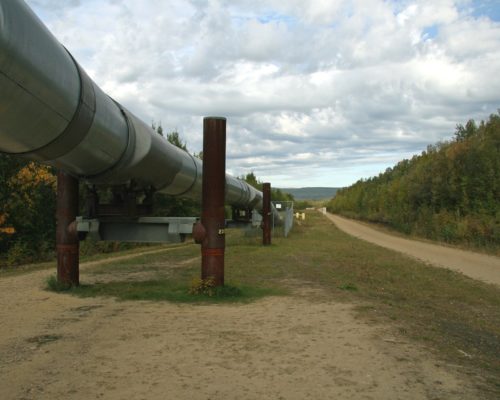National Oil Companies Could Derail Carbon Targets
20 September 2022 – by Heba Hashem
For decades, climate activists have targeted oil and gas giants, protesting in the streets, blockading refineries and disrupting operations. Along with institutional and retail investors, they have been pressuring international oil companies like ExxonMobil and Royal Dutch Shell to speed up decarbonisation efforts. Some activists have even demanded that these legacy companies dump oil and gas immediately in favour of renewable energy and other green technologies.
How Much Pollution is Oil Production Causing?
These activists’ demands are justifiable, considering that the crude oil and natural gas industry and the use of its products account for over 50% of global greenhouse gas emissions.
In the United States, the largest source of GHG emissions comes from burning fossil fuels for electricity, heat and transportation. At the same time, the oil and gas industry is in decline. It has misallocated capital and generated poor returns for a long period of time.
While many of the large, publicly listed oil and gas companies have declared their intention to become carbon neutral by 2050, the challenge lies in the immediate future.
The latest 2100 warming projections show that global heating is on track for a rise of 2.7 degrees Celsius by the end of the century. This is despite numerous pledges at COP26 to limit global warming to 1.5 degrees Celsius in line with the Paris Agreement. Even half a degree of warming would have huge consequences for life on Earth.
National Oil Companies Are The Bigger Problem
The private oil companies, however, are only part of the picture. National oil companies produce a much bigger portion of the oil supply and the world’s fossil fuels and therefore, create far more emissions.
This means the success of the energy transition will largely depend on the behaviour of the petroleum industry.
State-owned oil companies produce half of the world’s oil and gas and invest 40% of capital into the sector. Furthermore, they control at least USD 3 trillion in assets.
Big Spending from Wholly Owned Largest Companies
New analysis has found that 20 of the world’s largest national oil and gas companies will be spending USD 932 billion by the end of 2030 on developing new oil and gas fields. Among them are several state-owned enterprises, including Saudi Aramco, Qatar Energy, Brazil’s Petrobras and China’s CNOOC.
Such investments will only lock various countries into a high-carbon pathway. Additionally, it will make it impossible to meet the Paris Agreement’s climate goals.
According to the United Nations Environment Programme, global oil production would have to decline annually by 4% to be consistent with the 1.5 degrees Celsius pathway. Yet, current government plans indicate an average 2% annual production increase.
To make matters more complicated, state-owned oil companies are rarely scrutinized and are generally accountable only to their national governments. For this reason, they don’t usually disclose enough information on their finances or operations.
State-Owned Oil Companies Finally Start to Move
However, there are reasons to be optimistic. Some of the largest national oil companies are making strides toward diversifying and decarbonising their operations.
A good example is Brazil’s Petrobas, which pledged a 25% reduction in carbon emissions from its total operations by 2030. The company has already lowered its carbon emissions by 21% since 2015.
Abu Dhabi National Oil Company (ADNOC), which exports more than three million barrels of oil per day, is also targeting a 25% reduction in GHG emissions by 2030.
The company has been able to reduce gas flaring by more than 90% since its inception. And it is expanding the capacity of its carbon capture facility six-fold. It also plans to derive up to 100% of its grid power from solar and nuclear power.
Meanwhile, Malaysia’s Petronas is targeting net-zero carbon emissions by 2050. Like ADNOC, it will rely on flaring and venting reductions. Additionally, it will also use carbon capture and other measures to achieve this goal.
Oil and Gas Industry Pledges: Empty Promises or Real Change?
It remains to be seen whether national oil companies will genuinely evolve into more responsible producers. Currently, none of the world’s biggest oil and gas firms has committed to stopping exploration.
In fact, from 2014 to 2019, the majority of oil companies increased either their oil or their gas production, a recent study found. If this trend continues and if state-owned companies aren’t held to the standards that private companies are, then the Paris goals are in serious jeopardy.



